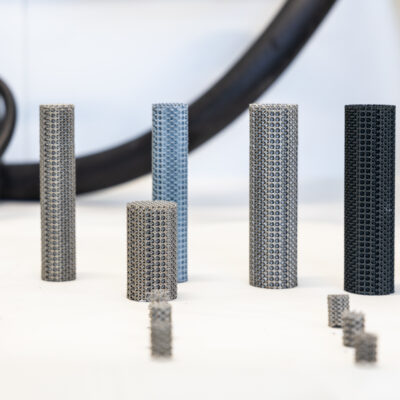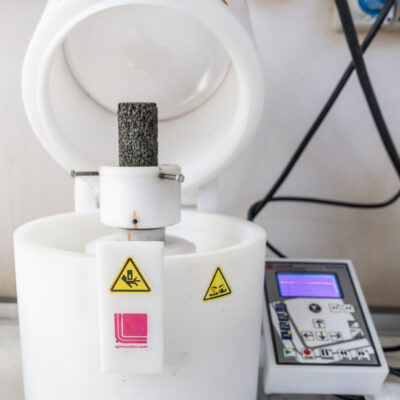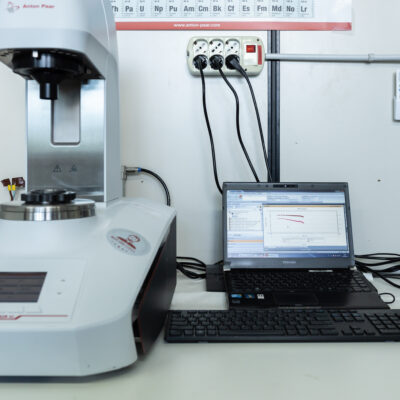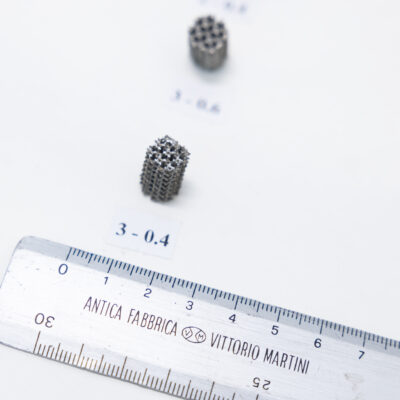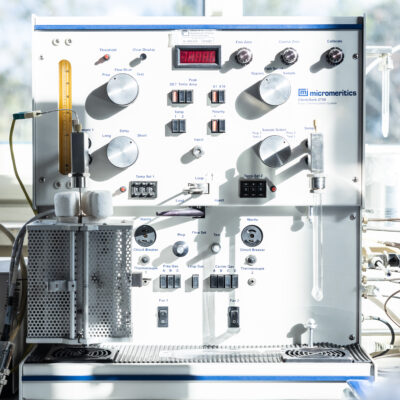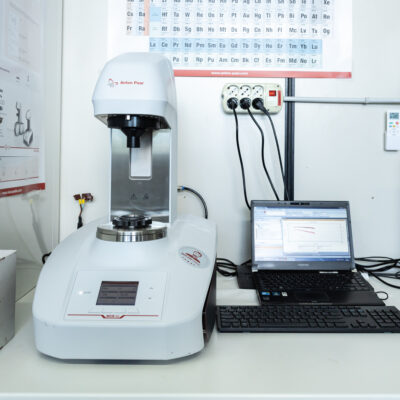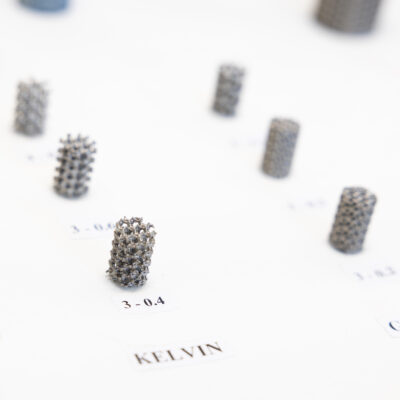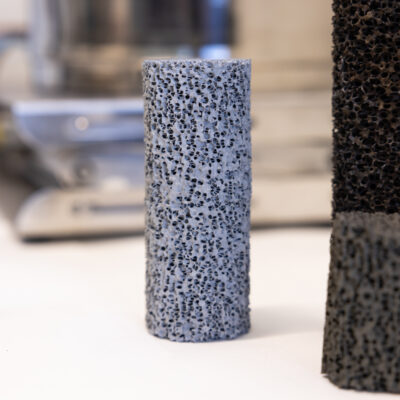The laboratory is mainly dedicated to the synthesis and characterisation of catalysts, obtained in powder form, granulates or deposited on preformed structures (monoliths, foams, 3D-printed open-cell periodic structures).
- +39 090 64 42 00
- Salita S. Lucia sopra Contesse, 5 - 98126 Messina (ME)
You are here:
/
Development of heterogeneous catalysts for the production of hydrogen/syngas, ammonia and synthetic methane
Laboratorio
4
Development of heterogeneous catalysts for the production of hydrogen/syngas, ammonia and synthetic methane
Topic
CO2 Conversion of to alternative fuels by means of heterogeneous catalysis; Transformation of by-products and bioderivatives into environmentally friendly energy carriers; Synthetic fuels; Energy treatment and qualification of biomasses; Power to gas (methanation); Green ammonia synthesis; Production of hydrogen from fossil fuels and green ammonia

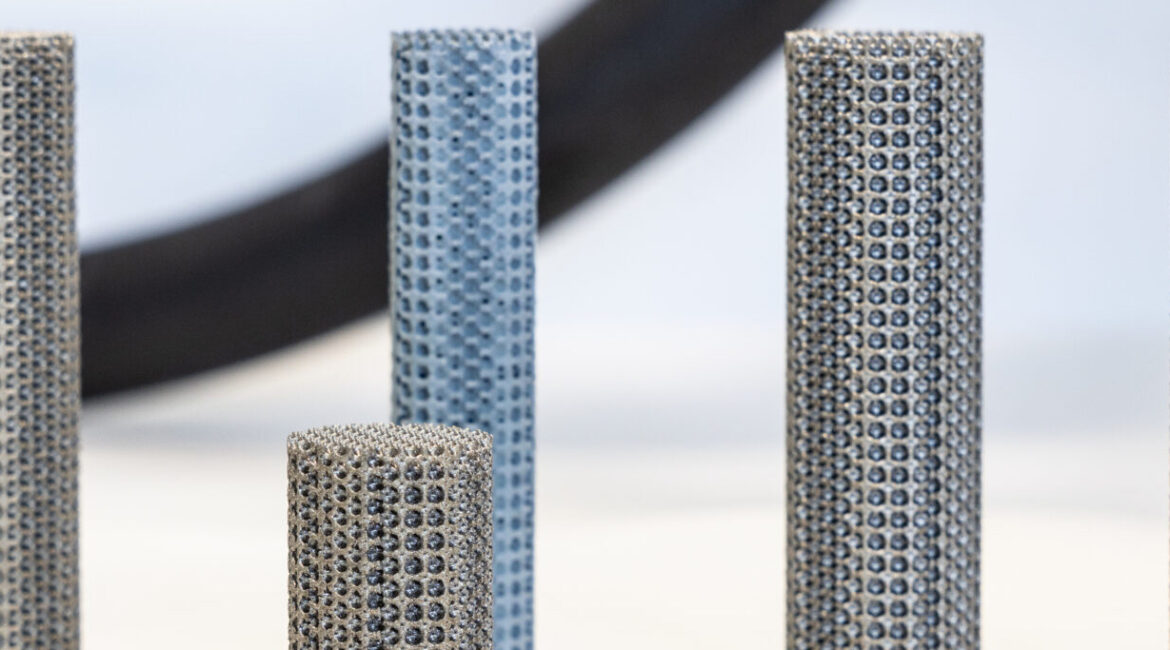
Apparecchiature presenti
Preparation equipment includes:
- Agitators ;
- Homogenisers;
- Ultrasonic baths;
- Hydraulic press;
- Programmed temperature muffles;
- pH-meters.
Equipment for the activation of structured support includes:
- Two ‘spin coaters’ and systems specifically made for dip coating;
- Analyser (Chemisorb 2750-Micromeritics) at Programmed Temperature for gas physisorption and chemisorption measurements (TPR, TPO, TPD, BET single point etc.) for catalyst characterisation;
- A He pycnometer (Ultrapyc 5000 Pycnometer, Anton Paar) for determining the density of porous solids.
Partnerships
- PoliTO – Politecnico di Torino, Dipartimento Scienza Applicata e Tecnologia, Torino (ITALIA)
- PoliMi – Politecnico di Milano, Dipartimento di Energia, Milano, (ITALIA)
- PoliMI – Politecnico di Milano, Dipartimento di Chimica, Materiali e Ingegneria Chimica “Giulio Natta”, Milano (ITALIA)
- UniME – Università degli Studi di Messina, Dipartimento di Ingegneria, Messina (ITALIA)
- UniCAL – Università della Calabria, Dipartimento di Ingegneria dell’Ambiente, Rende (ITALIA)
- UNISA – Università di salerno, Dipartimento di Ingegneria Industriale, Salerno (ITALIA)
- UNIBO – Università di bologna, Dipartimento di Ingegneria Industriale, Bologna (ITALIA)
- CNR-ITM – Istituto per la tecnologia delle membrane, Rende (ITALIA)
- CNR- STEMS – Istituto di Scienze e Tecnologie per l’Energia e la Mobilità Sostenibili, Napoli (ITALIA)
- TU/e – Eindhoven University of Technology, Department of Chemical Engineering and Chemistry Eindhoven (Olanda)
- UPC – Universitat Politècnica de Catalunya, Instituto de Técnicas Energéticas , Barcelona, (SPAGNA)
- UPV – Universitat de Pais Vasco, SUstainable PRocess Engineering, Bilbao (SPAGNA)
- UOWM- University of Western Macedonia, Department of Chemical Engineering, Western Macedonia (GRECIA).
- UCT – University of Cape Town, Catalysis Institute, Cape Town, (S. Africa)
- LU – Lebanese University, Faculty of Science, Beirut (LIBANO)
- TECNALIA – S. Sebastian (SPAGNA)
- ENGIE – Courbevoie, (FRANCIA)
- MERIDIONALE IMPIANTI – Catania (ITALIA)
Personale coinvolto
Senior researcher
Researcher
Research fellow
Research fellow
